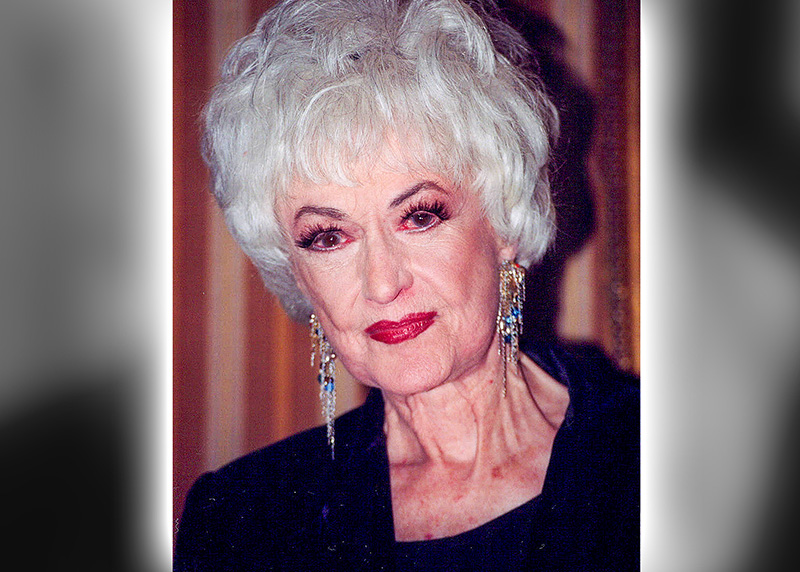Court Allows Transgender Athlete to Compete on Cross-Country Team
4th U.S. Circuit Court of Appeals rejects demands to lift its own injunction blocking West Virginia from enforcing its trans sport ban.

A federal appeals court has once again sided with a transgender middle school student, blocking the state of West Virginia from enforcing its ban prohibiting transgender girls and women from competing on female-designated sports teams.
As a result, the student, Becky Pepper-Jackson, will be allowed to continue competing with her friends as a member of the girls’ cross country and track teams.
Lawyers for the now-13-year-old girl say she’s been welcomed by teammates and coaches, and is currently on puberty blockers to prevent her from gaining a competitive physical advantage over other runners. Whether she will be able to continue doing so, or whether she’ll be able to receive hormone therapy as she grows older, will depend on whether she complies with an exception for youth with “severe gender dysphoria” in West Virginia’s ban on gender-affirming treatments for minors.
Last Friday, the Richmond-based 4th U.S. Circuit Court of Appeals rejected requests from West Virginia Republican Attorney General Patrick Morrisey, on behalf of the state, and former West Virginia State University soccer player Lainey Armistead, who intervened in the case with the help of the anti-LGBTQ legal organization Alliance Defending Freedom, to lift an injunction it issued back in February blocking the state from enforcing the state’s transgender athlete ban.
Both Morrrisey and Armistead demanded that West Virginia be allowed to enforce the law in order to protect the ability of cisgender female athletes to compete in and excel at the sports they play, based on their assertions that athletes assigned male at birth will have an inherent physiological advantage over female athletes, and will deprive the latter group of awards and opportunities to compete.
But the court said its reasoning remained unchanged from five months ago.
“Five months ago, this Court granted plaintiff an injunction pending appeal, allowing her to continue participating in her school’s girls’ track-and-field and cross-country teams. Two intervenors now move to suspend that injunction asserting plaintiff’s improvement in the shotput and discus events during the recent spring track and field season constitutes a ‘significant change in factual conditions’ that ‘renders continued enforcement [of the injunction] detrimental to the public interest,'” the court wrote in its decision.
“We deny the motion. Much of the motion impermissibly attempts to re-litigate issues that have already been submitted and considered. To the extent the current motion presents new arguments tethered to the asserted change in circumstances, they are insufficient to warrant suspension of the injunction pending appeal,” the court ruled, finding that neither Morrisey, on the state’s behalf, or Armistead had shown that circumstances surrounding Pepper-Jackson’s participation had not materially changed.
“When the injunction pending appeal was granted, plaintiff was regularly ranking in the ‘back of the pack’ in both track and field events. Movants argue plaintiff’s improvement in the shotput and discus events during the recent spring track and field season should prohibit her from participating in her school’s upcoming cross-country season because she will displace cisgender girls in competition rankings,” the court wrote.
“As an initial matter, we question whether a young athlete’s ordinary, year-over-year athletic improvement is the sort of significant factual development bearing on the public interest that would warrant our review,” the ruling continued. “But even if we accepted the premise that improvement in competition rankings could constitute a significant change in circumstances, movants still have not met their burden to warrant relief. Movants present little reason or evidence why plaintiff’s improvement in field throwing events would generate similar improvement in cross-country running events.
“Indeed, the limited information before us indicates that plaintiff’s improvement in shotput and discus was not matched by improvement in running events during the recent track-and-field season, when plaintiff was, for the second year in a row, deemed ‘too slow to compete in the track events,'” the court noted. “Movants thus fail, even on their own terms, to demonstrate that any changed circumstances would render plaintiff’s participation in the fall cross-country season ‘detrimental to the public interest.'”
Judge G. Steven Agee, an appointee of former President George W. Bush, dissented, arguing he would have lifted the injunction, and that Pepper-Jackson’s participation in shotput and discus has already harmed cisgender female athletes who placed or ranked behind her.
A federal judge initially blocked the law from taking effect, but later ruled against Pepper-Jackson, arguing that it was necessary to ensure cisgender female athletes are not placed at a competitive disadvantage when participating in sports.
That decision allowing the ban to be enforced was halted by the 4th U.S. Circuit Court of Appeals. Proponents of the law then filed an emergency request with the Supreme Court, demanding that the high court reverse the 4th Circuit’s decision. The Supreme Court rejected that request, although Justices Samuel Alito and Clarence Thomas noted that that they would have intervened in the case and lifted the injunction.
Having sought to circumvent the 4th Circuit and been rebuffed, proponents of the law then asked the 4th Circuit to lift its own injunction. Since the court has refused to do so, Pepper-Jackson will be able to compete in the sports she enjoys while the case makes its way through the courts.
“Becky — like all students — should have the opportunity to try out for a sports team and play with her peers,” Josh Block, a senior staff attorney with the national American Civil Liberties Union’s LGBTQ & HIV Project, said in a statement when the 4th Circuit first blocked the state from enforcing the ban. “We hope this also sends a message to other states to stop demonizing trans kids to score political points and to let these kids live their lives in peace.”
Support Metro Weekly’s Journalism
These are challenging times for news organizations. And yet it’s crucial we stay active and provide vital resources and information to both our local readers and the world. So won’t you please take a moment and consider supporting Metro Weekly with a membership? For as little as $5 a month, you can help ensure Metro Weekly magazine and MetroWeekly.com remain free, viable resources as we provide the best, most diverse, culturally-resonant LGBTQ coverage in both the D.C. region and around the world. Memberships come with exclusive perks and discounts, your own personal digital delivery of each week’s magazine (and an archive), access to our Member's Lounge when it launches this fall, and exclusive members-only items like Metro Weekly Membership Mugs and Tote Bags! Check out all our membership levels here and please join us today!
























You must be logged in to post a comment.